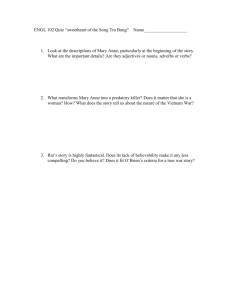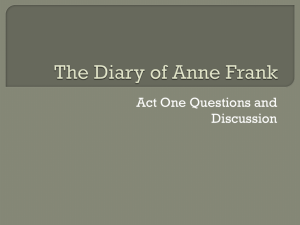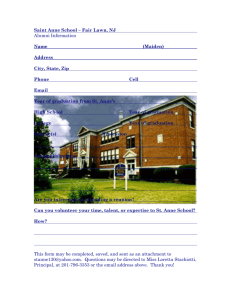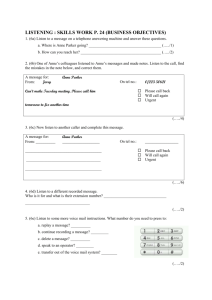Name: Period: Date: The Diary of Anne Frank Act One, Scenes 4-5
advertisement
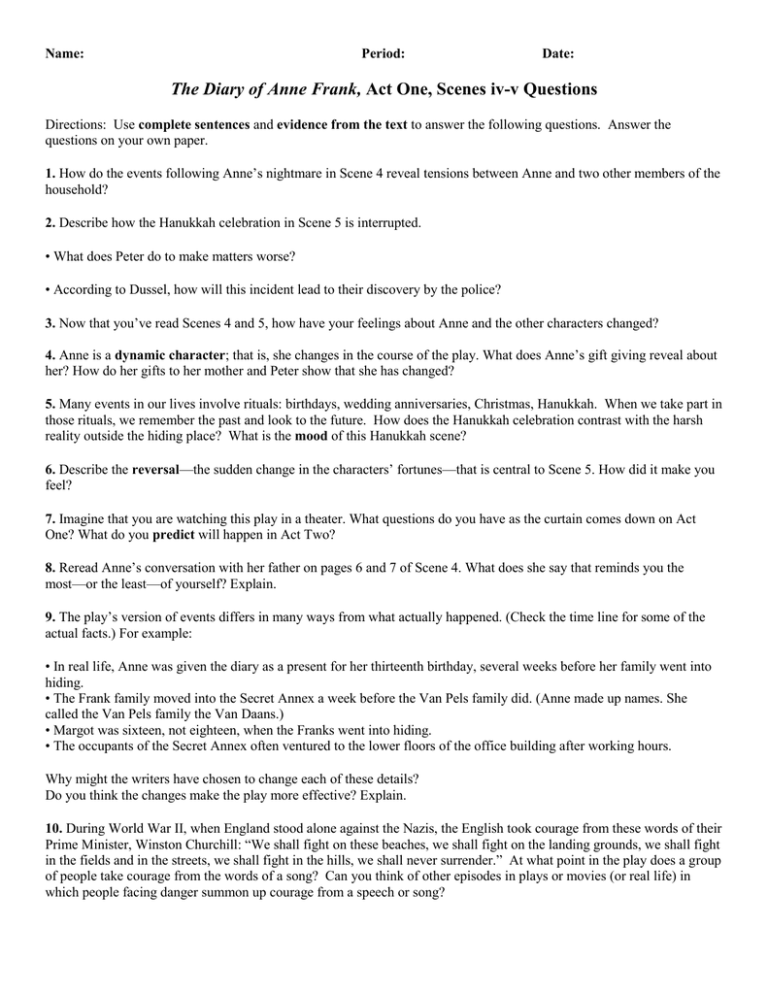
Name: Period: Date: The Diary of Anne Frank, Act One, Scenes iv-v Questions Directions: Use complete sentences and evidence from the text to answer the following questions. Answer the questions on your own paper. 1. How do the events following Anne’s nightmare in Scene 4 reveal tensions between Anne and two other members of the household? 2. Describe how the Hanukkah celebration in Scene 5 is interrupted. • What does Peter do to make matters worse? • According to Dussel, how will this incident lead to their discovery by the police? 3. Now that you’ve read Scenes 4 and 5, how have your feelings about Anne and the other characters changed? 4. Anne is a dynamic character; that is, she changes in the course of the play. What does Anne’s gift giving reveal about her? How do her gifts to her mother and Peter show that she has changed? 5. Many events in our lives involve rituals: birthdays, wedding anniversaries, Christmas, Hanukkah. When we take part in those rituals, we remember the past and look to the future. How does the Hanukkah celebration contrast with the harsh reality outside the hiding place? What is the mood of this Hanukkah scene? 6. Describe the reversal—the sudden change in the characters’ fortunes—that is central to Scene 5. How did it make you feel? 7. Imagine that you are watching this play in a theater. What questions do you have as the curtain comes down on Act One? What do you predict will happen in Act Two? 8. Reread Anne’s conversation with her father on pages 6 and 7 of Scene 4. What does she say that reminds you the most—or the least—of yourself? Explain. 9. The play’s version of events differs in many ways from what actually happened. (Check the time line for some of the actual facts.) For example: • In real life, Anne was given the diary as a present for her thirteenth birthday, several weeks before her family went into hiding. • The Frank family moved into the Secret Annex a week before the Van Pels family did. (Anne made up names. She called the Van Pels family the Van Daans.) • Margot was sixteen, not eighteen, when the Franks went into hiding. • The occupants of the Secret Annex often ventured to the lower floors of the office building after working hours. Why might the writers have chosen to change each of these details? Do you think the changes make the play more effective? Explain. 10. During World War II, when England stood alone against the Nazis, the English took courage from these words of their Prime Minister, Winston Churchill: “We shall fight on these beaches, we shall fight on the landing grounds, we shall fight in the fields and in the streets, we shall fight in the hills, we shall never surrender.” At what point in the play does a group of people take courage from the words of a song? Can you think of other episodes in plays or movies (or real life) in which people facing danger summon up courage from a speech or song?

